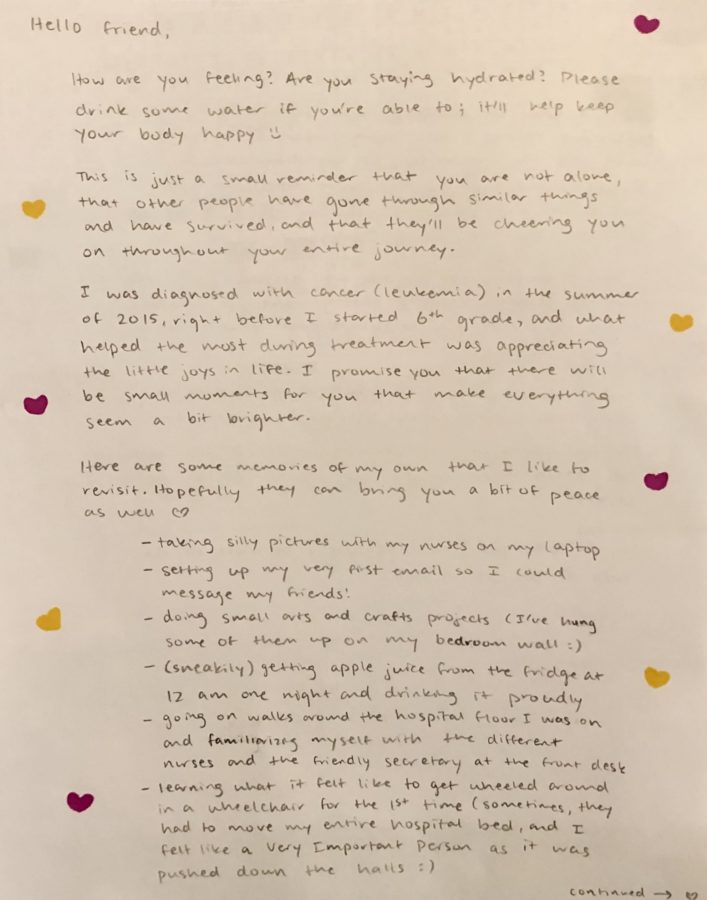By Christina Lee, Co-T/E Life Editor
Empty shelves, long lines and backordered items have been frequently greeting shoppers during the quarantine. Many also wear masks and are required to stand at “social distanced” spots in lines. At some stores, gloves and sanitizing wipes are provided. These are just some of the changes shoppers had to adapt to in light of the coronavirus pandemic.
On March 19, Pennsylvania Governor Tom Wolf issued all non-life sustaining businesses to close their physical locations. As a result, consumers and business owners alike have had to alter the way they shop and market products.
While several local restaurants have shut down temporarily, such as the Malvern Buttery, Hakata Ramen and Wayne First Watch, some have chosen to transition to online deliveries or launch curbside pickups.
“We haven’t had an online store for years, so I had to get creative and figure out a way to have curbside,” said Kimberly Davis Cuthbert, the owner and pastry chef of Sweet Jazmines bakery.
People are able to order from the Sweet Jazmines online store menu, which includes the bakery’s most popular bake-at-home sweet potato muffin batter. They are then assigned randomly set and staggered pickup times. Sweet Jazmines leaves the orders on a table and people get out of their cars to pick them up.
While curbside pickups are available for several stores, some people are still choosing to visit physical stores for groceries, but with an abundance of precaution.
“We make sure to have towels laid out in the back before going out, and my parents bring masks, gloves and hand sanitizers,” junior Nusayba Chowdhury said. “My parents also plan out the stores so that we only have to go to one store for all the groceries.”

Chowdhury’s parents also practice safe social distancing and precaution while in the stores by staying six feet apart, coming back to crowded aisles and making sure to only touch items they will buy.
“My parents also make me and my brother stay upstairs when they bring in all the groceries, and they make sure to wash all the produce and wipe down all the items and boxes with Clorox wipes,” Chowdhury said. “And then I can only come back downstairs after my parents have all taken showers.”
Other aspects of shopping during quarantine have changed as well.
“We buy everything in bulk now and we no longer visit a variety of stores,” Chowdhury said. “We are also buying a lot more in general, especially canned goods, and because we don’t go to the Indian market as much, we have been eating more American meals too.”
According to Aronte Bennett, Villanova University Associate Chair for Marketing and Business Law, the Terror Management Theory might explain the sudden shifts in consumer behavior since the beginning of the quarantine and pandemic. Terror Management Theory is a social psychology theory that states that a psychological conflict results from having a self-preservation instinct while at the same time realizing death is inevitable and unpredictable.
“When we feel like our mortality is salient, we can react in two ways: one of which is trying to reassure ourselves, which often happens through material acquisitions and material comforts,” Bennett said. “In the context of the current pandemic, there is a daily reminder of our mortality.”
Stockpiling, the act of purchasing more than what we need to save for future use, has also become quite common, with many shoppers trying to buy enormous quantities of bathroom supplies, disinfectants and baking items for example.
“Market signals that there may soon be a shortage can cause stockpiling,” Bennet said. “As we began to read news stories about shortages in supplies and when we came across them while shopping, we felt compelled to purchase more than we would typically, and as a result, we began displaying unusual stockpiling behaviors.”
Shortages are also common on online market platforms, which have become more popular during the quarantine. Shoppers often find items backordered or sold-out as e-market providers like Amazon try to meet the unprecedented rise in demand.
“My parents now buy everything online, mostly through Amazon and Whole Foods,” junior Gordon Hu said. “We tried to order tofu, but it never came, and a lot of stuff is out of stock, so it just doesn’t come.”
Hu said it is also more difficult to order and get foods he would normally eat for his vegan diet.
The shortages for certain food items, especially those necessary for baking, could possibly be explained by consumers’ desire for structure.
“The required specificity of baking can be demanding but it appears that consumers are finding relief in that kind of structure as all of our other structures have decimated,” Bennett said. “Baking might be a way to reinsert some sort of structure into our experiences and that may be why certain supplies are so hard to find.”
In the big picture of consumer shopping habits, Bennett believes that the pandemic will have differential impacts across the different generations.
“The Baby Boomers, Gen X and even some Millennials have firmly established shopping behaviors as they have been shopping for decades now and can understand how the current situation relates to all the other experiences they have had and how it might revert in the future,” Bennet said. “But for Gen Z, who are still in their formative years and forming their world views, this will leave an indelible mark on their schema for how shopping looks.”
























































































